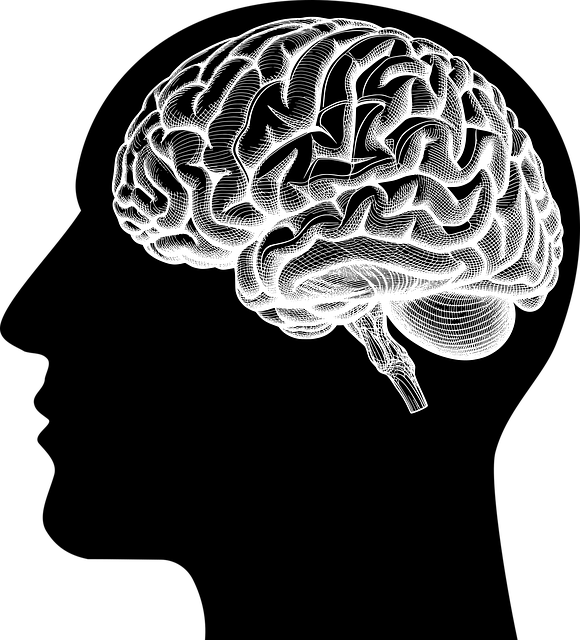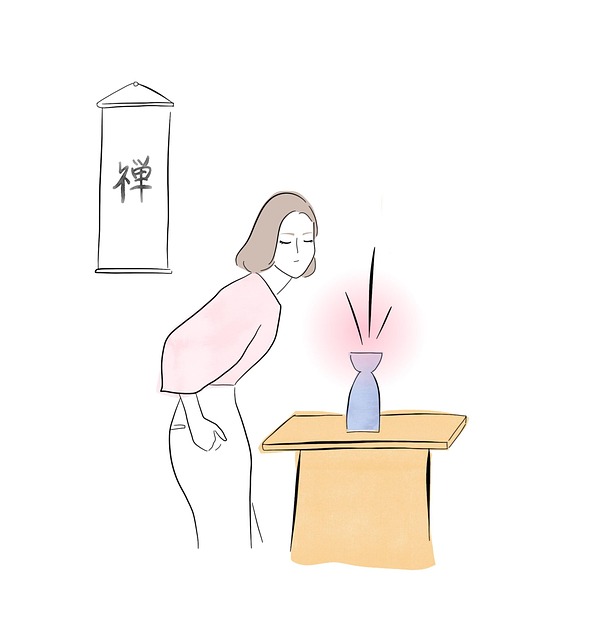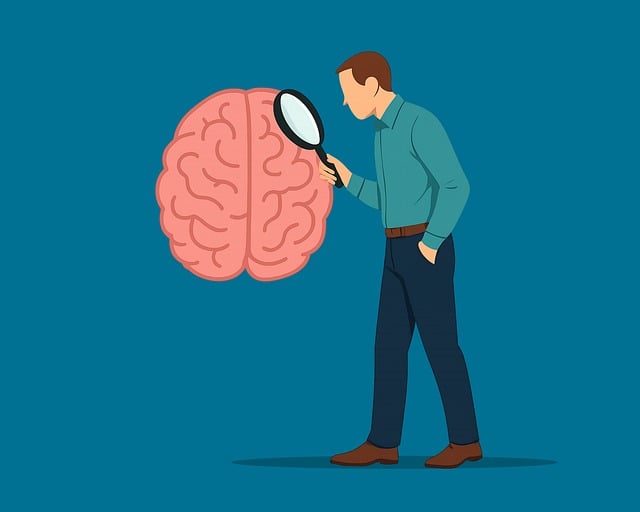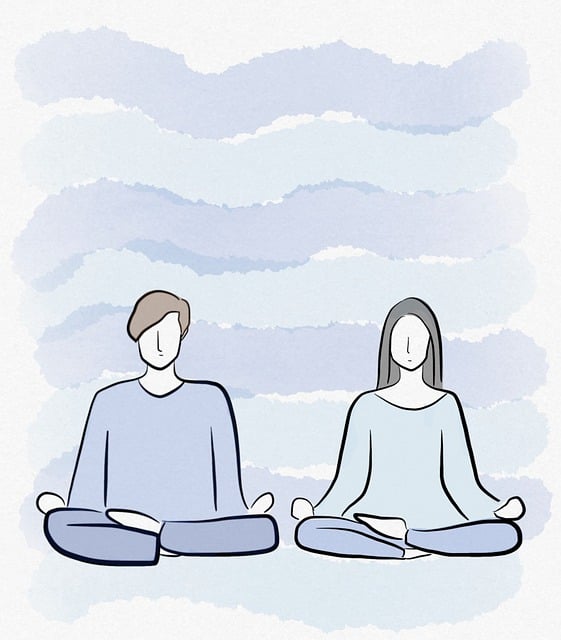Mindfulness meditation is a powerful therapy for adults stress management, offering emotional balance, reduced anxiety, and enhanced coping mechanisms. It cultivates present-moment awareness, improving resilience and overall well-being. In healthcare settings, mindfulness training equips professionals with cultural competency for more empathetic care. Creating a dedicated meditation space with relaxation, silence, and personalized touches enhances the therapy process. Techniques like deep breathing and Progressive Muscle Relaxation (PMR) are integral to stress management programs, fostering confidence and neural pathways for mental wellness. Integrating mindfulness into daily life, along with journaling, strengthens these benefits for adults seeking holistic well-being.
Discover the transformative power of mindfulness meditation, a therapy for adults aiming to manage stress effectively. This comprehensive guide explores essential practices, from understanding the foundation of mindfulness to creating a calming meditation space. Learn techniques to enhance focus and relaxation, and discover how to integrate mindfulness into daily life for sustained wellbeing. Unwind, find clarity, and reduce stress with these practical steps towards improved mental health.
- Understanding Mindfulness Meditation: A Foundation for Stress Management
- The Benefits of Regular Practice for Adult Wellbeing
- Setting Up Your Meditation Space: Creating a Calming Environment
- Techniques and Exercises to Enhance Focus and Relaxation
- Integrating Mindfulness into Daily Life: Sustaining Long-Term Practice
Understanding Mindfulness Meditation: A Foundation for Stress Management

Mindfulness meditation is a powerful therapy for adults seeking stress management and mental well-being. It involves a simple yet profound practice: focusing your awareness on the present moment, non-judgmentally. This ancient technique has gained modern prominence as an effective tool to combat the negative impacts of chronic stress. By cultivating mindfulness, individuals can develop a deeper understanding of their thoughts and emotions, fostering better coping mechanisms and overall mental resilience.
Incorporating regular meditation practice can serve as a trauma support service for those with past experiences, helping to reduce anxiety relief and promote emotional balance. It is also beneficial in healthcare provider cultural competency training, enabling professionals to offer more empathetic care by enhancing their own mindfulness skills. This ancient art of awareness has a profound impact on modern life, offering simple yet transformative ways to navigate the challenges of everyday stress management.
The Benefits of Regular Practice for Adult Wellbeing

Regular mindfulness meditation practice offers adults a powerful tool for enhancing their overall wellbeing. By cultivating present-moment awareness and non-judgmental observation, individuals can develop a deeper sense of self-awareness exercises, which in turn promotes better emotional regulation and stress management. This ancient practice has been shown to reduce symptoms associated with anxiety, depression, and even chronic pain. Incorporating mindfulness into daily routines allows for improved focus, enhanced self-esteem, and increased resilience to life’s challenges, making it a valuable asset for anyone seeking to optimize their mental health.
Beyond the benefits for individual well-being, regular meditation practice can contribute to better relationships and overall quality of life. Research highlights its potential in fostering cultural competency among healthcare providers, enabling more empathetic and effective patient care. As mindfulness gains prominence in mainstream healthcare, understanding and integrating these practices can enhance self-esteem improvement and promote a holistic approach to wellness for adults across diverse backgrounds.
Setting Up Your Meditation Space: Creating a Calming Environment

Creating a dedicated meditation space is a powerful step towards prioritizing your mental well-being and cultivating inner strength. This sacred area should be designed to promote relaxation, silence, and focus—essential elements for effective mindfulness practice. Start by clearing a quiet corner in your home where you can sit comfortably without distractions. Consider natural lighting and fresh air, as these elements contribute to a soothing atmosphere. Incorporate soft, neutral colors, and perhaps add some greenery like plants or flowers, which have been shown to enhance emotional healing processes.
A calm environment allows for a more profound connection with your thoughts during meditation. Think about adding meaningful objects that inspire peace, such as crystals, candles, or artwork that resonates with you. Personalize your space to make it inviting and reflective of your journey towards stress management. This tailored environment will serve as a sanctuary, facilitating your therapy for adults, and supporting the emotional healing processes that are often enhanced by mindfulness meditation.
Techniques and Exercises to Enhance Focus and Relaxation

Mindfulness meditation offers a range of techniques and exercises to enhance focus and relaxation, serving as an effective therapy for adults seeking stress management. Simple practices like deep breathing exercises, where one consciously focuses on inhales and exhales, help calm the mind and body. Visualisation techniques, such as imagining peaceful scenes or focusing on a single object, can also significantly reduce stress levels and promote mental wellness.
For those looking to deepen their mindfulness practice, progressive muscle relaxation (PMR) is a valuable tool. PMR involves systematically tensing and relaxing different muscle groups, helping individuals become more aware of physical sensations and fostering a deeper sense of calm. These practices are integral components of many Mental Wellness Coaching Programs and Healthcare Provider Cultural Competency Training initiatives, contributing to enhanced confidence boosting and overall well-being.
Integrating Mindfulness into Daily Life: Sustaining Long-Term Practice

Integrating mindfulness into daily life is key to sustaining long-term meditation practice and reaping its mental wellness benefits. Beyond dedicated sitting sessions, mindful moments can be cultivated throughout the day. Simple practices like conscious breathing during breaks, eating with full attention to textures and flavors, or engaging the senses while walking can anchor mindfulness in everyday routines. This consistent integration helps strengthen neural pathways associated with presence and self-awareness, making it easier to return to a calm and focused state.
Consider incorporating journaling exercises alongside your meditation practice for enhanced mental wellness and self-esteem improvement. Reflecting on experiences, emotions, and thoughts in writing allows you to process them more deeply, fostering greater understanding of yourself and your stress management tools. By combining mindfulness meditation with regular journaling, adults can develop a powerful therapeutic duo to support their overall well-being.
Mindfulness meditation, as explored in this guide, offers a powerful therapy for adults seeking stress management and enhanced wellbeing. By establishing a calming meditation space, employing various techniques, and integrating mindfulness into daily routines, individuals can cultivate focus, relaxation, and a deeper connection with the present moment. Regular practice has been shown to significantly improve mental health, making it an invaluable tool in managing adult stressors. Embrace these principles to embark on a journey of self-discovery and inner peace.












